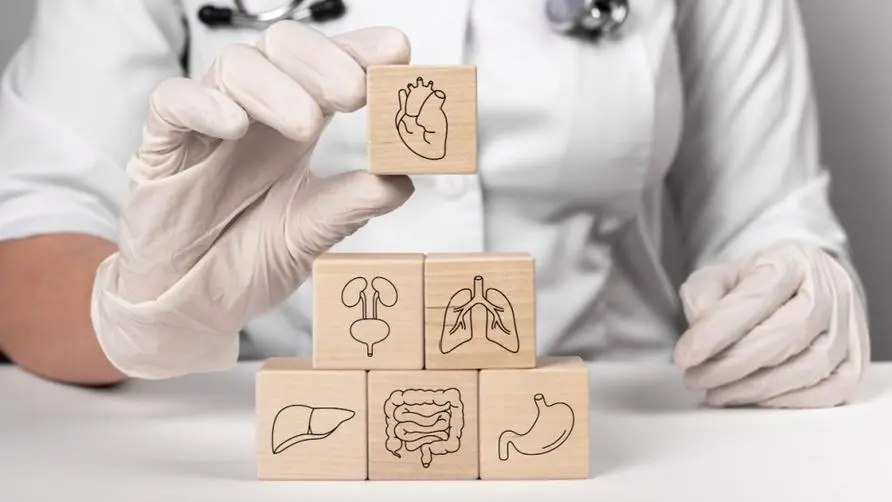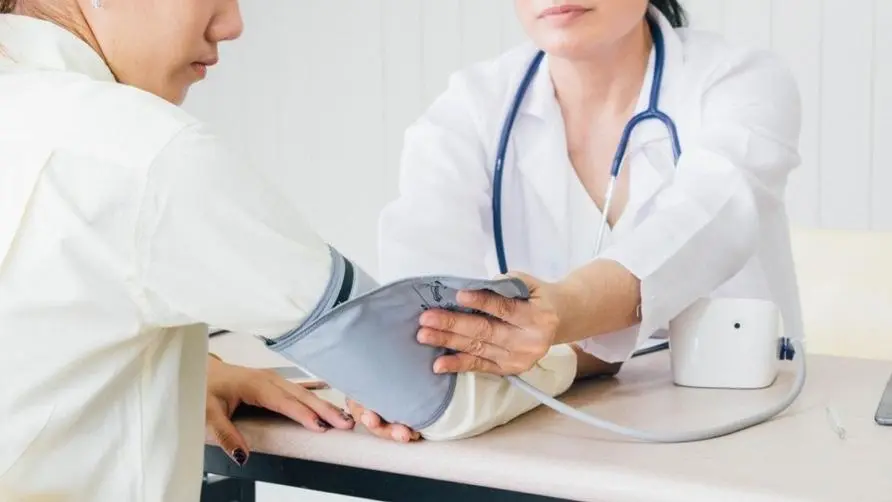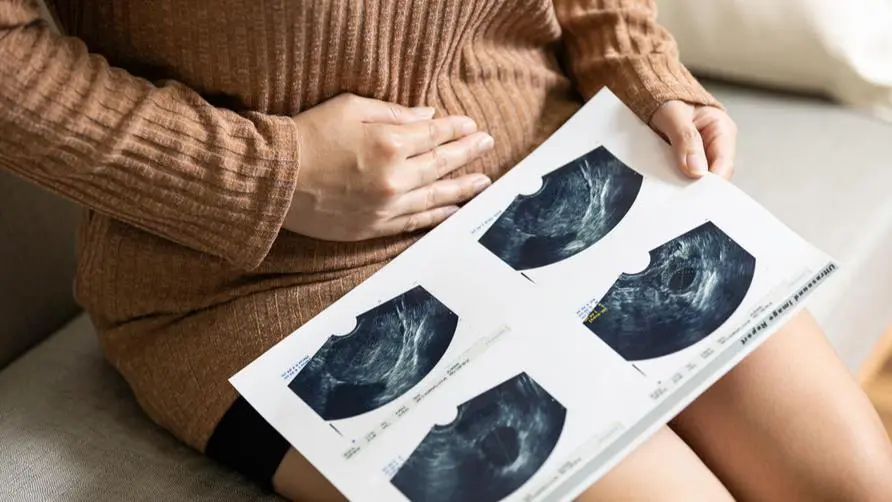An "abnormal bulge" in a woman's belly does not necessarily mean she is pregnant! She was shocked after the examination: There was a "volleyball-sized" fibroid under her belly

An “abnormal bulge” in a woman’s belly does not necessarily mean she is pregnant! She was shocked after the examination: there was an “18 cm fibroid” hidden under her belly
If a woman’s lower abdomen is swollen “as if she were pregnant”, accompanied by excessive menstrual bleeding and abnormal pain during menstruation, be aware that it may be “uterine fibroids” or “chocolate cysts”! Dr. Wei Junhui, the attending physician of the Obstetrics and Gynecology Department of Chimei Hospital, said that she had previously treated a 46-year-old woman whose lower abdomen was slightly bulging as if she were five months pregnant. Each menstruation was accompanied by excessive menstrual blood and pain, which seriously affected her life.
After examination, it was discovered that what was in the patient’s belly was not a fetus, but a huge 18-centimeter cervical fibroid and a 9-centimeter chocolate ovarian cyst. Because the tumor was so large, doctors said that it could only be treated with traditional surgery, which caused the patient to avoid it out of fear and her condition worsened. It was not until Dr. Wei Junhui suggested that the patient use “Da Vinci Robot Arm Minimally Invasive Surgery” to remove the chocolate cysts in the uterus and ovaries, and also to deal with the severe adhesion problem in the abdomen, that the patient’s fear disappeared. On the third day after the operation, the patient not only recovered and was discharged from the hospital, but also had a flat abdomen, and the problem of menstrual pain was also resolved.
The larger the uterine fibroids in women, the more dangerous they are! In what situations may surgery be necessary?
Dr. Wei Junhui pointed out that the age of women suffering from uterine fibroids is approximately between 30 and 49 years old, and the risk of developing uterine fibroids before menopause is as high as over 30%. However, most uterine fibroids are benign tumors, and not every woman with uterine fibroids will experience discomfort or require surgery. Differences in the location and size of fibroid growth will affect the symptoms. Symptoms require treatment. Generally, uterine fibroids can be diagnosed through ultrasound. If there are severe symptoms or women who want to have children, surgical removal may be considered.
In addition to traditional laparotomy surgery, uterine fibroid treatment can also include minimally invasive surgeries such as hysteroscopy, hysteroscopy, laparoscopy, and Da Vinci robotic arm. Dr. Wei Junhui explained that the da Vinci robotic arm minimally invasive surgery was introduced to Taiwan about 20 years ago and has three major advantages: clear vision, stable movement, and skillful instruments, which can provide doctors with a lot of help when performing operations.
Uterine fibroids that are too large and severely adherent can also be solved! 3 major advantages of Da Vinci minimally invasive surgery
Dr. Wei Junhui pointed out that natural orifice laparoscopic surgery enters the abdominal cavity through the vagina, so the wound is hidden deep in the vagina. There are no visible wounds in the abdomen, and the pain is mild. Most patients can sit upright or get out of bed a few hours after the surgery. Because recovery is fast and scar-free, it is suitable for modern women who are busy and love beauty. Using traditional laparoscopic natural orifice surgery, due to the small space, the instruments are prone to collide with the lens and cause shaking. With the assistance of the Da Vinci robotic arm for minimally invasive surgery, the lens is stable and the instruments have flexible joint movements, which greatly improves the stability of the surgeon’s surgical movements.
Dr. Wei Junhui gave the example of another 40-year-old female patient. Her uterine fibroids continued to grow in size to 6 centimeters during the follow-up period. Due to compression of the endometrium, they caused heavy menstrual flow and anemia. Although I wanted to undergo surgery, I was worried about the pain and scarring, so I couldn’t make a decision. After examination by Dr. Wei Junhui, he recommended that the patient use “Da Vinci robotic arm-assisted natural orifice laparoscopy” for surgery, which not only results in less bleeding, faster recovery, but also leaves no wounds in the abdomen, thus minimizing the degree of damage. He was discharged successfully the next day after the operation and is doing well so far.
Dr. Wei Junhui explained that when faced with difficult surgeries, such as huge tumors or severe adhesions, and the surgical field of vision is limited, the Da Vinci robotic arm system can allow the doctor to operate three instruments and the assistant to operate one instrument, for a total of four instruments to be performed simultaneously. Movements can often create a clearer surgical field. In the case of the above-mentioned patient who had both giant fibroids and ovarian chocolate cysts combined with adhesion, even traditional surgery was very challenging.
Due to the gradual upgrade of the system and the improvement of instrument performance, the Da Vinci robot hand is very suitable for assisting in highly complex gynecological surgeries, such as natural orifice laparoscopic surgeries without wounds in the abdomen, and for patients with huge tumors and serious infections. Sticky case. Medical equipment and instruments keep pace with the times. Dr. Wei Junhui also suggests that female patients can discuss the most suitable surgical method with their doctor based on their own needs.





